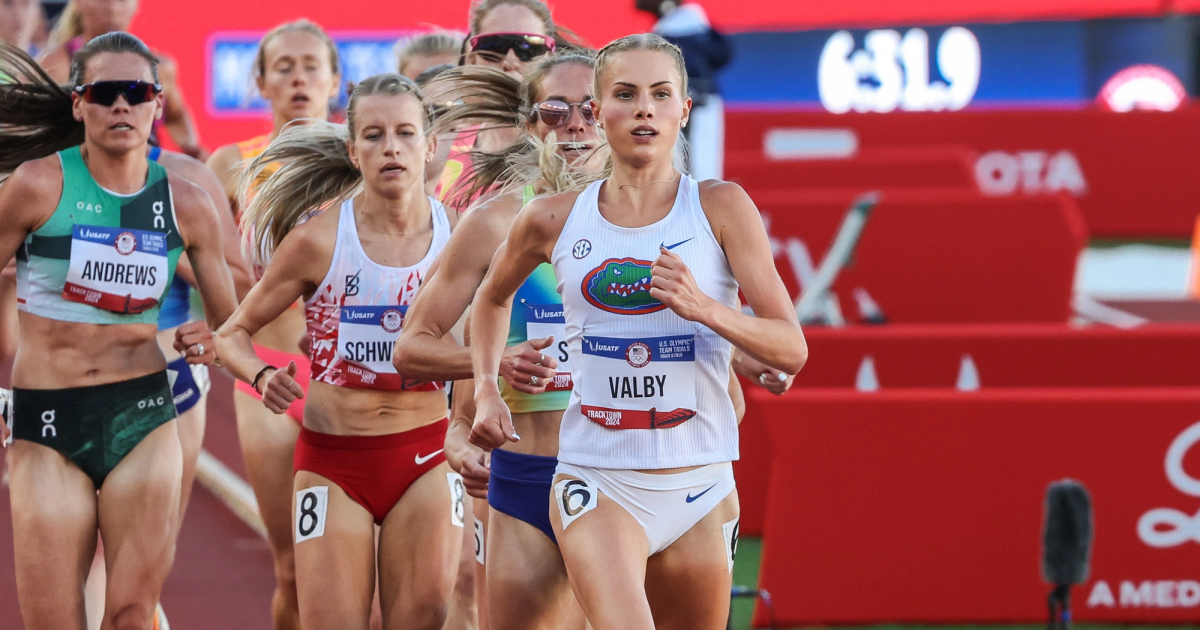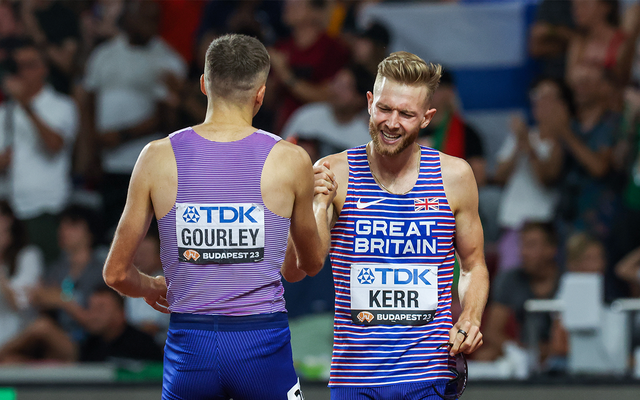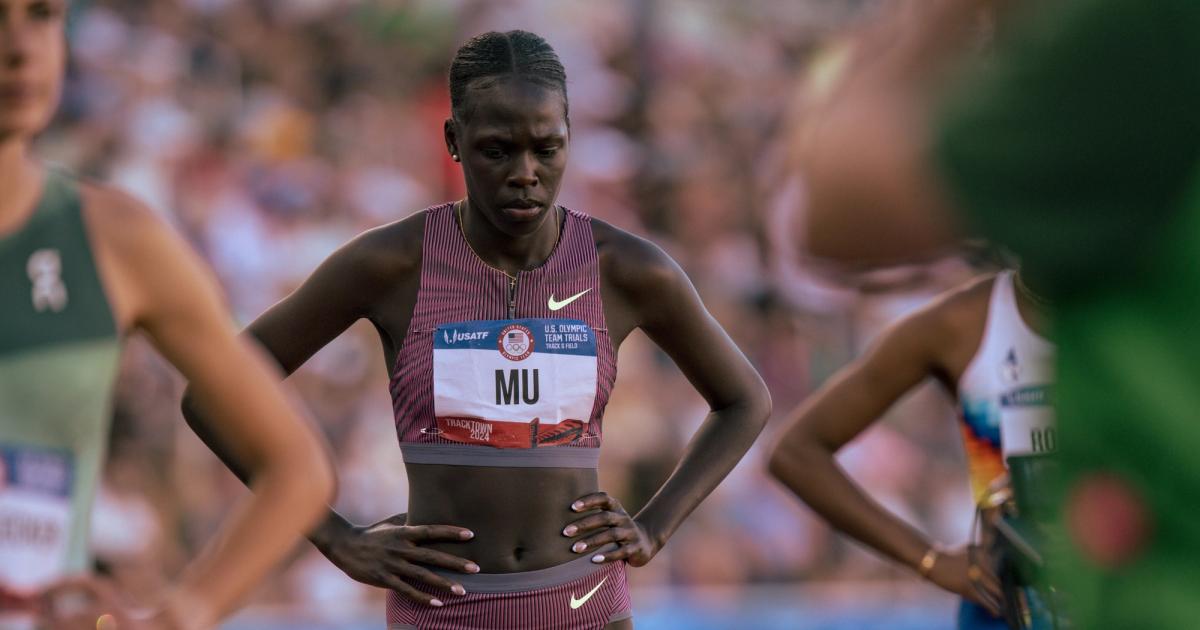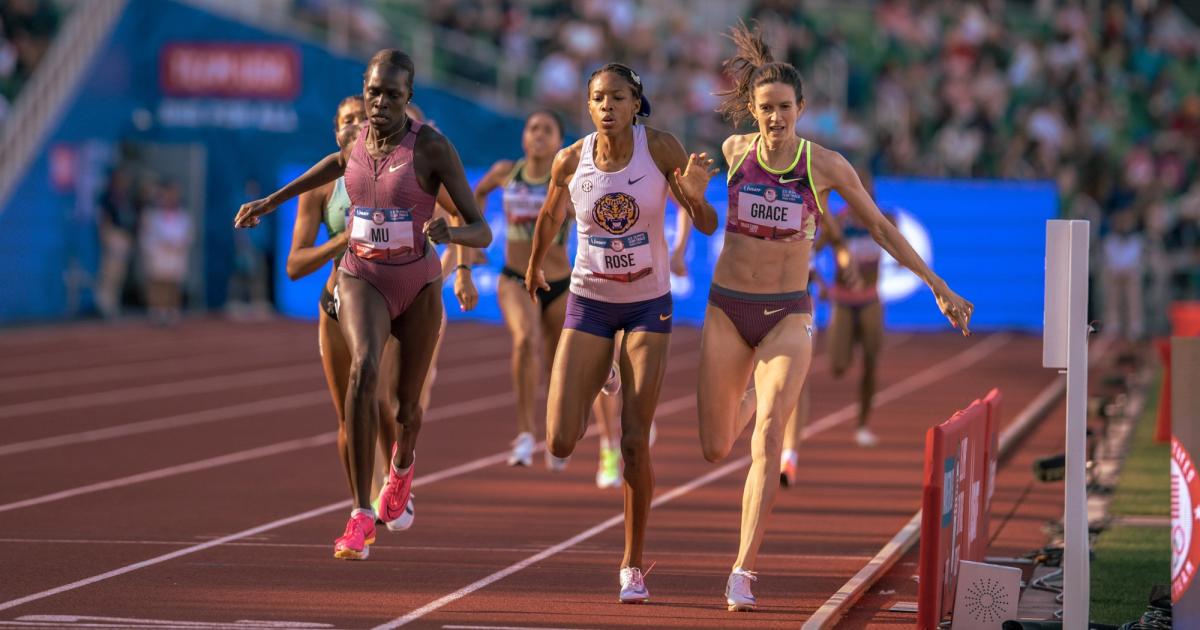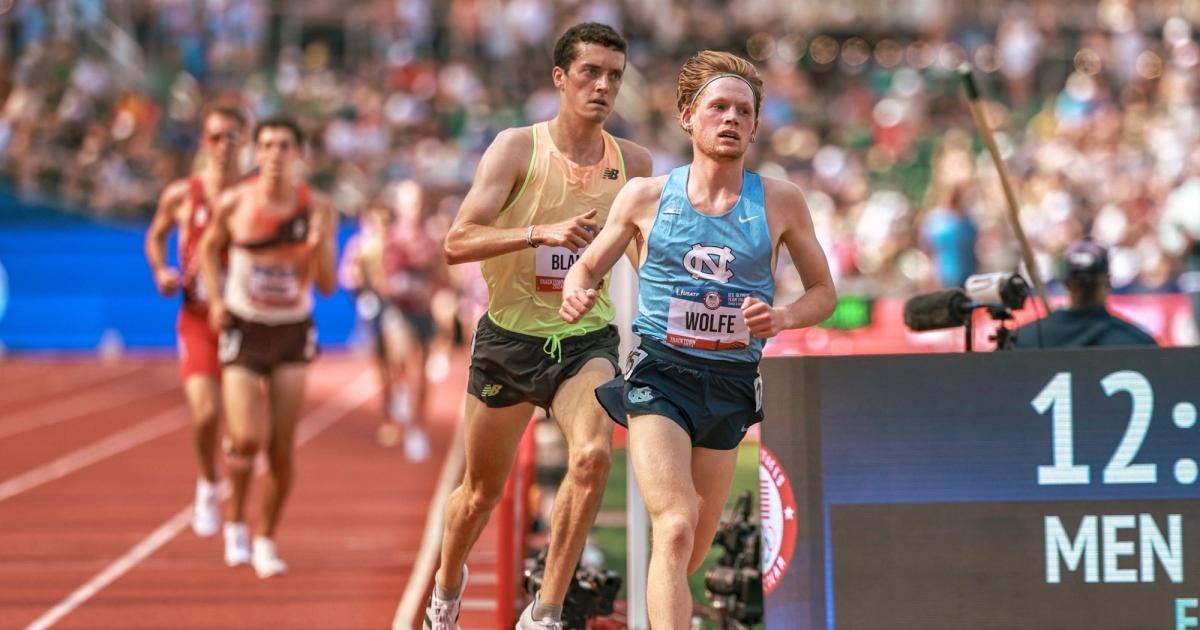By David Melly
July 10, 2024
Now that we know the team rosters, it’s time to unpack (or complain, or angrily defend) the rankings system and selection policies that got us here.
Whether you’re a British athlete who qualified but can’t go or an American field eventer on the outside looking in on World rankings – or a fan just hoping that your favorite athletes will grace your TV screen sometime this August – there’s growing discontent with the status quo. But is the core issue confusion and misunderstanding about how the current system is designed to work, or systemic inequities that should be addressed?
This has been a hot-button discussion topic in the various Lap Count/CITIUS MAG group chats, as well as by athletes and fans on Twitter and in the comment sections of virtually every social media post announcing team rosters. There’s a real diversity of opinion – both on what the problems and solutions are, and whether certain features of the system are even a problem.
Here’s a quick rundown of common criticisms, reactions, and responses to issues highlighted by this year’s round of Olympic qualification.
“The ‘meet classification’ system is unbalanced.”
Creating an Olympic qualification system that prioritizes fairness, incentivizes head-to-head competition, and balances regional interests is no easy feat. Less than a decade ago, we only qualified athletes on automatic standard, and the World Rankings system was created to push top athletes to compete against one another and create an avenue for others to race their way into qualification.
The “weighting” element of World ranking comes from the categorization of meets into 10 categories, wherein athletes’ performance receives a certain number of bonus points for place. Finishing eighth at a Category “B” meet wins you the same number of placing points as winning a Category “D” meet, for example. The weighting of meets considers a number of factors, including historic field quality, prize money, and facility specifications.
One thing that is not taken into account is accessibility or geographic location. WA has made some efforts to bring high-quality competition to parts of the world that haven’t historically been hubs of professional athletics, but there remains serious inequities. The Continental Tour Gold meets, for example, are all “A” level meets, weighted heavier than the U.S. Trials or NCAA Championships, and while they take place across five different continents this year, six of the 11 occur in Europe. If you’re interested in chasing bonus points, the easiest way is still to galavant across that particular continent all summer – which is a much more reasonable ask for a Dutch athlete than an Australian.
And then there’s the cold war between the NCAA and World Athletics. Collegiate races outside of the Division I championship are rated lowly (should the SEC championship, one of the premier sprint competitions in the world, really be an “F” meet?), which is a big part of why many collegians end up on the wrong side of the ranking quota.
In theory, the NCAA is an “amateur” league and track and field is a “professional” sport (imagine big asterisks on both those terms), but the reality is that many of the world’s best are currently competing in the collegiate ranks. The NCAA also doesn’t comply with World Athletic policies in technical areas like shoe requirements or drug testing procedures, and for whatever reason has demonstrated little to no willingness to conform.
But should we change the way we categorize and rank performance? Or is it the impetus of non-European athletes to maximize their own opportunities and prioritize high-ranking events in their own region? There’s no easy answer. Some options…
- Change the weighting system: A few simple changes could go a long way toward leveling some of the biggest imbalances in the existing World ranking system. WA could stand to be more proactive about setting up higher-caliber meets around the world, whether by directly supporting meets in underserved regions looking to improve their categorization with things like prize money grants or technical assistance or by offering waivers for worthy meets that meet some, but not all, criteria for a certain category.
Or more simply, if there is a particular meet where one event has absurd depth for some reason (like the Sound Running TEN or the Kenyan Trials 5000m), WA could allow organizers to petition for one-off increases to placing points for those specific events.
- Better harness the opportunities we have: It’s important to remember that the ranking system is still relatively young. We’ve only been using the current format (a mix of auto-qualifiers and performance-based rankings) since 2019, and each year World Athletics has retooled the system in small ways to try and make it better reflect the realities of the track and field world.
There are imbalances in the system that are deliberate: WA rightly wants to incentivize participation in circuit-style events like the Diamond League and the Continental Cup and boost interest in regional championships like NACAC and African Champs. USATF has put some effort into hosting events like the Grand Prix meets that offer a lot of rankings points but national governing bodies could be doing more to help domestic meets land in the highest-possible category. Some of the burden does have to fall on individual coaches and athletes to build a race schedule that is both aimed at hitting the standard and racking up ranking points – Americans tend to be good at the first, but not as good at the second.
- Do away with standards entirely: There are few other sports where you can qualify for a championship without playing your way in. Whether it’s getting a world ranking in tennis or making the playoffs in baseball, track and field is somewhat of an outlier in that we essentially allow byes into our biggest meets by virtue of hitting a performance threshold sometimes over a year in advance of the Big Show. The real “make ‘em race” boosters out there will argue that the path to truly professionalizing track and field is to go all-in on a system that forces athletes to compete early, often, and against other pros to even make it to the Olympics.
“Not every top-three finisher at Trials makes the Olympics.”
American fans in particular have chafed at the recurring phenomenon that a worthy, but not quota-hitting, top three performance in the U.S. Olympic Trials does not necessarily guarantee a spot on Team USA. There’s been a lot of attention given to the Parkers (Valby and Wolfe) in the distance events.
But the starkest example from 2024 came in the women’s high jump, where Kentucky’s Charity Hufnagel won the U.S. title in a lifetime best 1.94m, beating two athletes out of the 16 in the entire world to hold the Olympic standard. However, only the second and third placers from the event will be in Paris. The problem, ultimately, is that a top-three performance at a meet like the U.S. Trials will likely move an athlete up in the world rankings, but your score is an average of 3 or 5 (depending on the event) performances from throughout the qualifying window, so if you break through to world-class at the national championships but only posted middling marks leading up to it, tough luck.
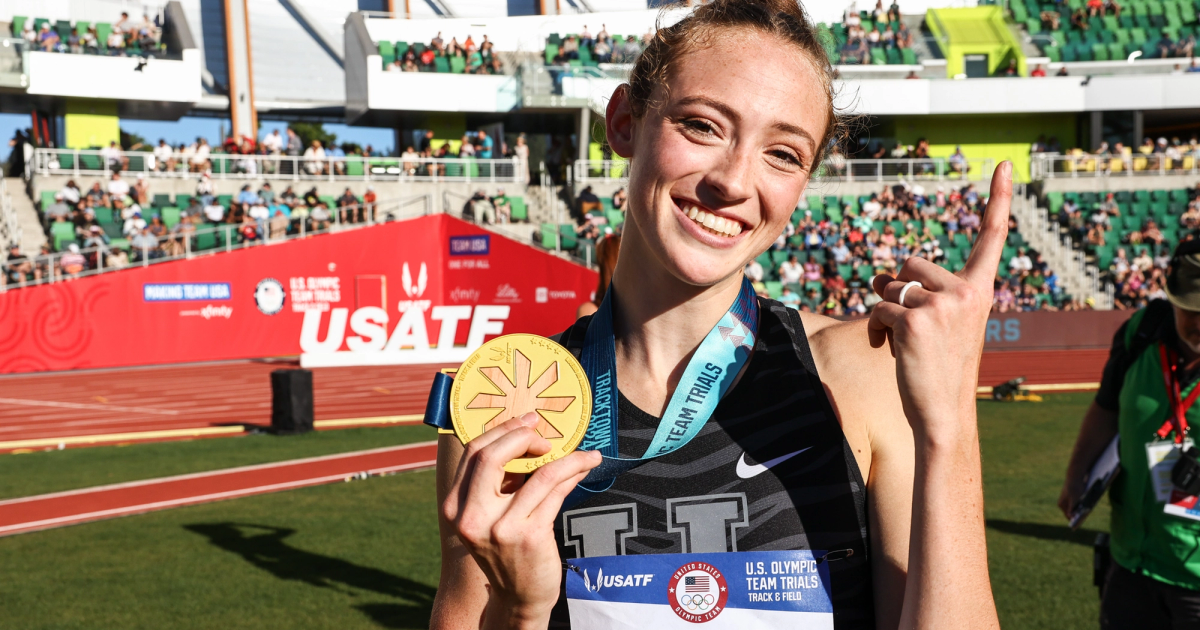
Then again, not all national trials are category “B” meets like the U.S.’s. Others are as low as category “F,” like the Kenyan Trials. A third placer at Kenyan Trials only gets five bonus points for placing third, compared with 70 in the U.S. (Even if that third-place finisher put up a mark like Koitatoi Kidali at the Kenyan Trials, going 1:42.66 in the 800m final.) One solution would be for World Athletics to allow for a “trials superscore” placing system for the top three regardless of meet. That way, finishing in the top-three at your country’s Trials would help push you closer toward a qualifying mark – but not guarantee it.
Of course, not all countries’ Trials are equally deep – nor is every event within a championship equally strong. It’s a safe supposition that regardless of your body of work leading up to that point, finishing top-three in the 100m hurdles in the U.S. or in the 1500m in Ethiopia means you deserve to compete at the Olympics, but a third-place finish in a small national championship doesn’t necessarily mean you’re top 30ish in the world in your event. There needs to be a balance between rewarding championship performances – the best indicator for subsequent championship performance – and recognizing that winnowing down fields doesn’t necessarily mean every country deserves a spot.
“Not every federation sends all their qualified athletes.”
This is maybe the trickiest one to wrap our minds around from a policymaking perspective, and is really the only complaint where nobody in our group chats can put together a Devil’s advocate-style counterargument. Anyone who doesn’t actively work for a national federation has to feel the intense sense of injustice that bubbles up when athletes that have rightfully qualified for the Olympics don’t get to go. We recognize that robust funding is not always easy to come by in this sport, and that federations are forced to make tricky decisions about what they can afford, but at the very least, national federations can – and should – offer qualified athletes the chance to pay or fundraise their own trip if they can’t provide institutional support for everyone.
Countries set their own selection rules, but World Athletics is, ultimately, the governing body of national federations, so they have significant power to require conditions for team participation in championships. So here’s what we propose: If a country has more than three healthy, qualified, and willing athletes, they can choose their team however they want, but they must enter three athletes into the global championship. If a country has three or fewer athletes qualified in an event, they must enter the qualified athletes they have.
It would create significant complications for WA to compel the federations to fund every athlete’s trip (although, ideally, they should), but the very least they can do for athletes who earn their spot on the starting line is give them a singlet and the chance to compete. It’s also in WA’s best interest to quash any notions that qualifying on ranking is somehow less meaningful than qualifying on standard– and it waters down the championships themselves if the best athletes in the world aren’t actually there.

David Melly
David began contributing to CITIUS in 2018, and quickly cemented himself as an integral part of the team thanks to his quick wit, hot takes, undying love for the sport and willingness to get yelled at online.
